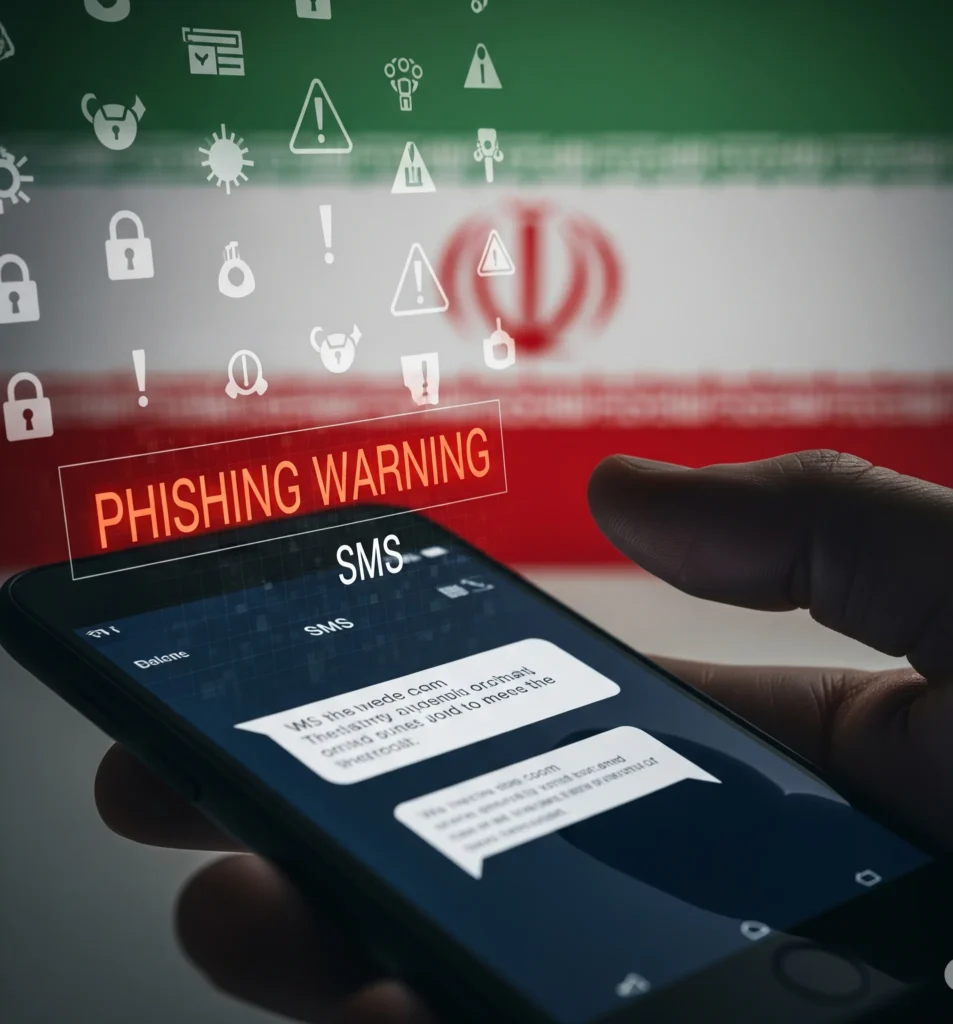Overview
A new wave of cyberattacks has emerged, with Iran-linked threat actors launching SMS phishing campaigns specifically targeting Western diplomats. These attacks aim to steal credentials and compromise sensitive communication channels, raising alarm across international security agencies.
Key Facts
- The campaign primarily targets diplomats and embassy officials in Europe and North America.
- Attackers use SMS phishing (smishing) techniques to trick victims into clicking malicious links.
- The campaign appears tied to Iranian state-sponsored actors, specifically the group known as TA453 (Charming Kitten).
- Messages often spoof legitimate services, such as two-factor authentication or courier delivery notifications.
- The phishing infrastructure has been linked through shared domains, hosting services, and behavioral patterns.
What’s Verified and What’s Still Unclear
✅ Verified:
- Use of fake SMS alerts redirecting victims to credential-harvesting sites.
- Target profile includes diplomats, journalists, and academics with Middle East expertise.
- Tactics closely align with known Iranian APT operations.
❓ Still Unclear:
- Whether the stolen credentials have been used for follow-on intrusions.
- Full extent of data exfiltration and damage done to affected entities.
- Whether mobile spyware or device compromise was involved beyond phishing.
Timeline of Events
- Early March 2025: Initial suspicious SMS patterns observed by threat intelligence firms.
- Late March 2025: Evidence confirmed by Western cybersecurity agencies linking to TA453.
- April 2025: Surge in reports from European diplomatic offices facing credential harvesting attempts.
- May 2025: Public advisory released by multiple CERTs warning against smishing threats.
Who’s Behind It?
Cybersecurity analysts and national security agencies strongly suspect TA453 (Charming Kitten), a group aligned with Iran’s Islamic Revolutionary Guard Corps (IRGC). Known for conducting espionage on political, academic, and military targets, TA453 has a history of using phishing and social engineering to gain access to sensitive systems.
Public & Industry Response
- Several embassies and diplomatic organizations have enhanced mobile threat detection.
- Western governments issued joint cybersecurity advisories urging vigilance against SMS-based threats.
- Telecom providers are now cooperating with governments to flag suspicious bulk SMS activity.
- Cybersecurity firms have updated indicators of compromise (IOCs) and detection rules across EDR/XDR platforms.
What Makes This Attack Unique?
- The focus on SMS-based phishing, rather than traditional email-based attacks, shows an evolution in attacker methods.
- Highly personalized messages demonstrate in-depth reconnaissance on targets.
- Timing coincided with international summits, possibly aiming to intercept confidential communications.
Understanding the Basics
What is Smishing?
Smishing is a form of phishing where attackers use SMS messages to deceive individuals into clicking malicious links or sharing private information. It’s effective due to high mobile engagement and perceived trust in mobile messages.
What Happens Next?
Experts anticipate further disclosures as digital forensics progress. Diplomats and sensitive government sectors may see tighter mobile device policies. It’s likely that additional nation-state groups will adopt similar SMS tactics in future espionage operations.
Summary
This latest SMS phishing campaign by Iran-linked actors underlines the ever-evolving threat landscape for high-value targets such as diplomats. With mobile devices now in the crosshairs, cybersecurity strategies must adapt to address threats beyond traditional networks. The West’s diplomatic corps remains on high alert as the investigation unfolds.
